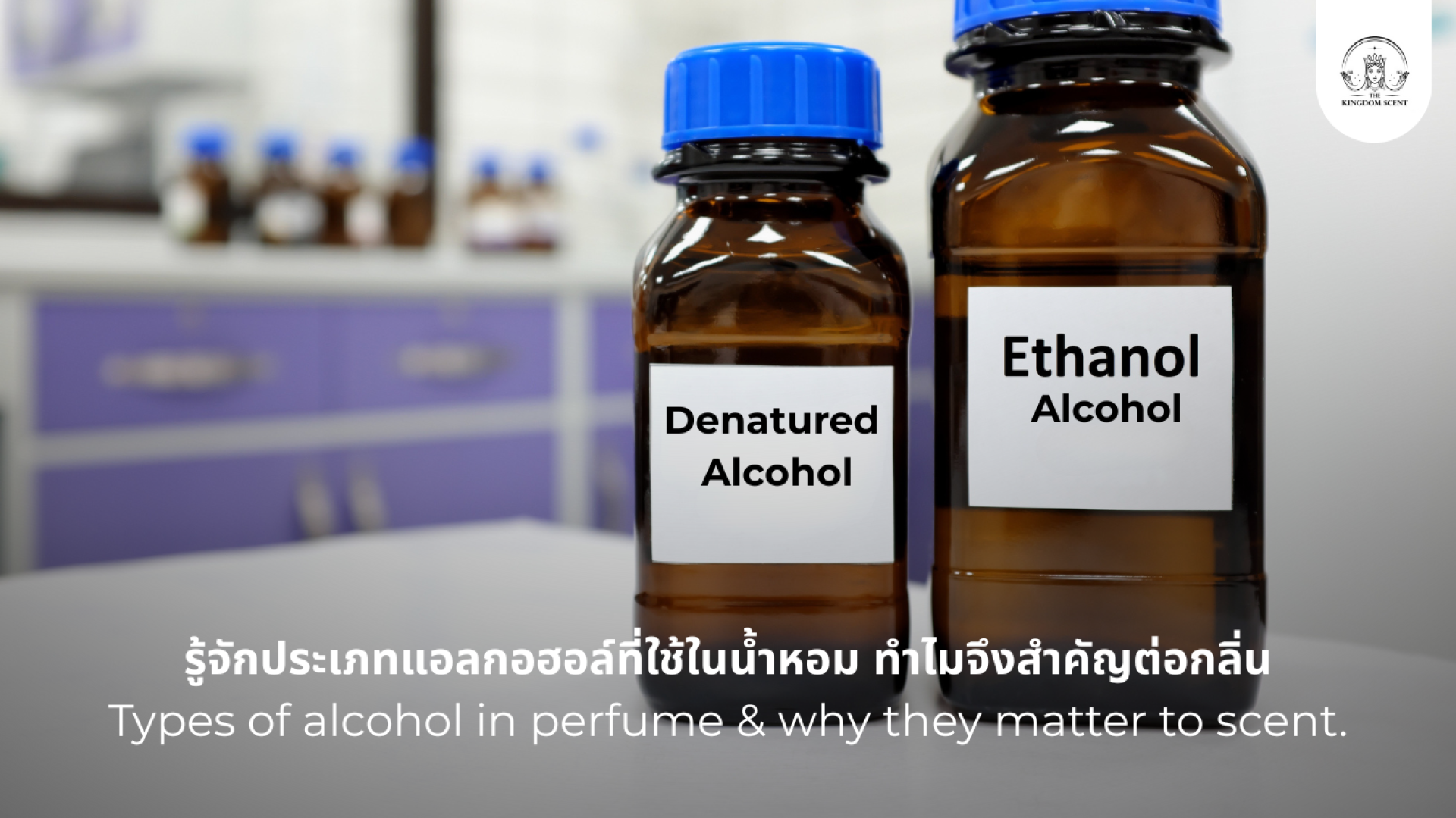Types of alcohol in perfume & why they matter to scent.

When people think about alcohol in perfume, they often assume its just a solvent used to dilute fragrance oils. However, alcohol plays a far more important role. Its not only a carrier that delivers scent into the air but also affects the longevity, diffusion, and even the sensory experience of wearing perfume.
In this article, well explore the most common types of alcohol used in perfumery, their impact on scent quality, and how to choose the right oneespecially if you're starting out in DIY fragrance making or considering custom scent design.
Why Is Alcohol Essential in Perfume?
Alcohol in perfume serves three core functions
1. Solvent It helps dissolve perfume oils, allowing ingredients to blend and stabilize.
2. Carrier It lifts the scent into the air when sprayed, enhancing projection.
3. Evaporator It controls how the scent develops over time, affecting how top, middle, and base notes are released.
Using the wrong type of alcoholor one of poor qualitycan cause the fragrance to smell off, fade quickly, or have poor projection.
Types of Alcohol Used in Perfume
1. Ethanol 95-96% (Food Grade or Cosmetic Grade)
This is the most common and preferred type of alcohol in perfumery, especially for artisan or handmade fragrances.
Pros
- Odorless and neutral, preserving the true fragrance of your oils
- Excellent evaporation and diffusion
- Safe for skin (when cosmetic grade is used)
Cons
- More expensive than industrial alcohols
- May be subject to regulation or restricted sale in some countries
2. Denatured Alcohol (Alcohol SD)
This is ethanol that has been mixed with substances to make it unfit for consumption. It's still safe for use in cosmetics and is widely used in commercial fragrances.
Examples: SD Alcohol 40-B, Alcohol Denat.
Pros
- Affordable and widely available
- Fast-evaporating, enhances projection
- Commonly used in mass-market perfumes
Cons
- May have a faint scent due to additives (e.g., Bitrex or methanol)
- Can cause skin irritation for sensitive users
3. Isopropyl Alcohol (IPA)
Although sometimes mentioned in DIY settings, IPA is not recommended as a perfume base. It is mostly used for cleaning equipment or as a processing aid.
Why avoid IPA in perfumes?
Strong, unpleasant odor
Harsh on skin and not suitable for long-term wear
Inhalation in large quantities can be harmful
How Alcohol Affects Your Fragrance
The type of alcohol you use directly influences how a perfume smells and behaves on the skin
1. Evaporation speed: Determines how quickly top notes appear and fade.
2. Purity: Alcohols with impurities may distort the intended scent or introduce off-notes.
3. Feel on skin: Quality alcohol affects the cooling, tingling, or burning sensation after spraying.
Using high-purity alcohol ensures that your fragrance smells clean, fresh, and well-balanced from start to finish.
Which Alcohol Should You Choose?
If you're a beginner or creating perfume at home, consider
Ethanol 9596% Cosmetic Grade Best for achieving a clean, professional scent with no interference.
Alcohol SD 40-B A more affordable and accessible option with reliable performance.
Avoid: IPA or industrial-grade alcohols that are not formulated for skin contact or fragrance use.
Safety Tips for Using Alcohol
Never use fuel-grade or general-purpose cleaning alcohol in perfumethey often contain toxic chemicals.
Store alcohol in a cool, dry place away from sunlight and heat.
Alcohol is flammablealways handle it with care and keep it away from open flames.
Want a Signature Scent Without the Alcohol Guesswork?
If dealing with alcohol types and formula ratios feels overwhelming, The Kingdom Scent offers a perfect solution.
We provide Custom Fragrance Design Services crafted by professional perfumers. Whether you want a personal signature scent or something for your brand, well create a perfume that is safe, long-lasting, and uniquely youno need to handle alcohol or experiment alone.
Interested in a custom fragrance?
Visit us at www.thekingdomscents.com


